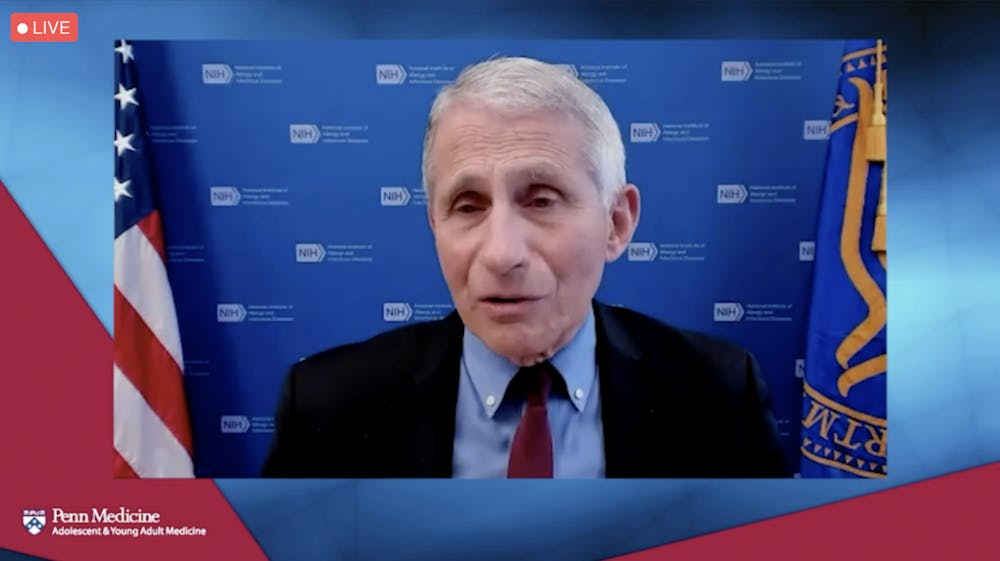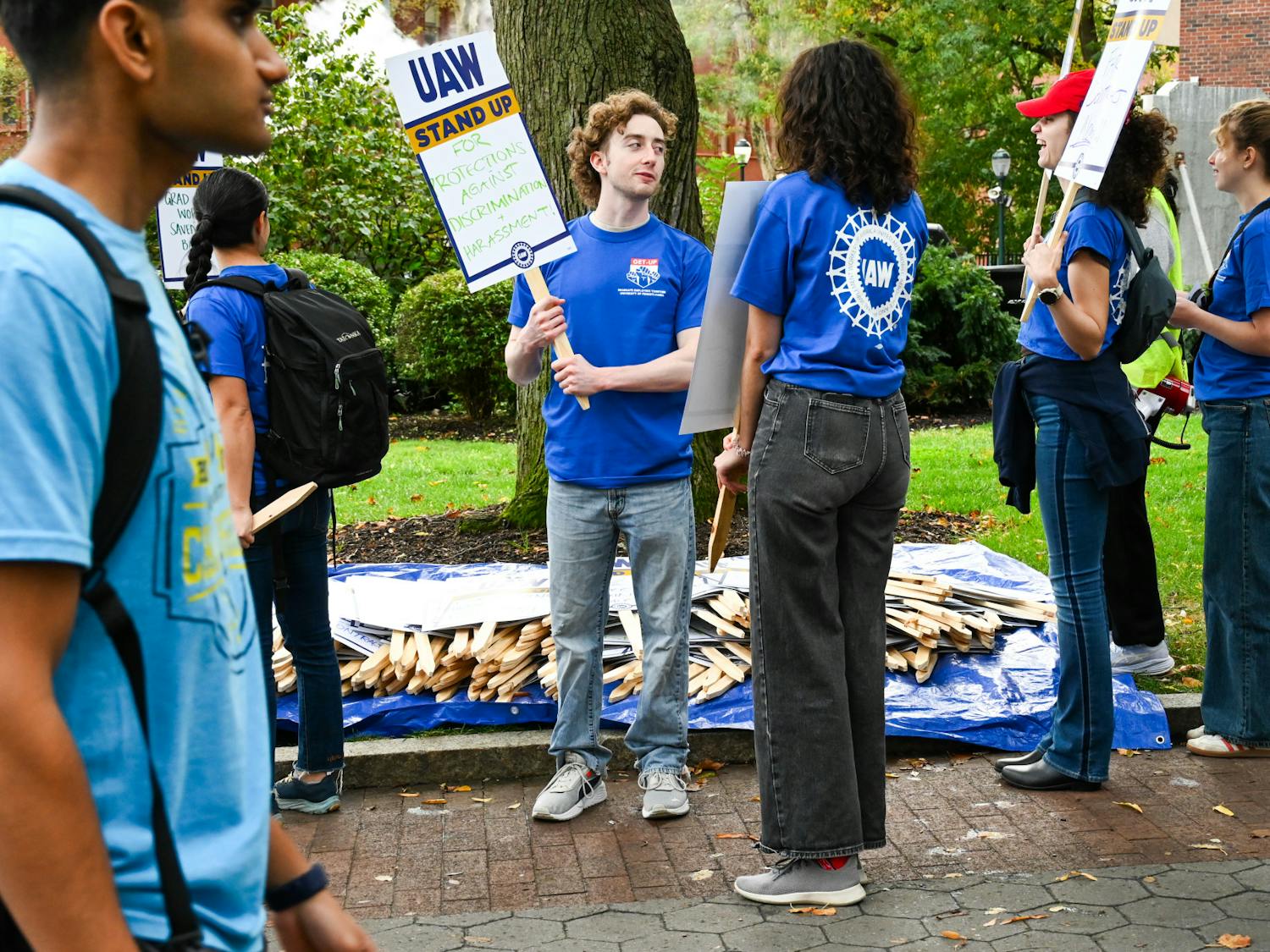Penn Medicine experts joined Anthony Fauci, a renowned infectious disease expert leading the United States' response to COVID-19, to encourage young people to get vaccinated amid the rise of the Delta variant.
The virtual panel, titled “COVID-19 and Gen Z: When can I get my Life Back?” featured Fauci, Chief Medical Officer and Senior Vice President of the University of Pennsylvania Health System P.J. Brennan, professor of Psychiatry at the Perelman School of Medicine Cabrina Campbell, and physician at the Children's Hospital of Philadelphia Kenneth R. Ginsburg. The event covered the importance of young people getting vaccinated, vaccine equity, and the pandemic's impact on the mental health of Generation Z — individuals aged 10 to 25 years old — across the country.
Fauci stressed the importance of vaccination for reducing mask restrictions and conducting a safe, in-person fall semester. Penn plans to hold an in-person fall semester, and the University announced that masks are no longer required both indoors and outdoors for individuals who are fully vaccinated against COVID-19. Fauci said that it is crucial for young people to continue to get vaccinated, citing that vaccines are about 81% effective against the United States's newly emerging Delta variant.
“This is how we will defeat this pandemic and restore our lives, [by] each of us doing our part by getting vaccinated to protect ourselves, our loved ones, and our communities," Fauci said. "Vaccination can relieve the worry about serious illness and death."
Fauci also spoke about how pandemic-related factors, including isolation and virtual learning, have led to an increase in the diagnosis of mental illnesses such as anxiety and depression, particularly in teenagers and young adults. He said that recovering from the rise in mental illness diagnoses is a solitary process in which individuals must have compassion for one another, adding that as more people become vaccinated, the more safely they will be able to socialize.
Campbell also discussed the impact of the pandemic on mental health. To self-monitor for signs of depression, Campell said she suggests monitoring "SIG" — a mnemonic device that comes from the Latin word for sick — where S stands for sleep, I stands for interest in pleasurable activities, and G stands for guilt or feelings of worthlessness.
Post-traumatic stress disorder is another effect of the pandemic, Campbell said, noting that unexpected loss coupled with the inability to grieve with others can be very damaging.
“You may have nightmares, feel guilty, become jumpy and irritable, which can lead to unhealthy coping, such as using substances," Campbell said. "If these symptoms last more than one month, properly seek effective treatment from your mental health provider."
RELATED:
Penn lifts nearly all indoor mask-wearing requirements for vaccinated individuals
Penn Med, CHOP contribute to $72,000 gift to address racial inequities surrounding COVID-19
Penn sponsors 'Philly Vax Sweepstakes' to incentivize Phila. residents to get vaccinated
Fauci also discussed how COVID-19 has highlighted the vast racial health disparities in the United States. He said that the Biden administration's desire to make the vaccine as accessible as possible has been crucial for communities of color. He added that larger changes within the health care system in the United States could take up to a decade, noting that many of the health conditions that Latinx and Black people suffer from are the result of the poor conditions in the areas that are largely populated by these ethnic and racial groups.
Fauci also discussed the possibility of COVID-19 booster shots, noting that they are correlated with immunity and antibodies.
“If [antibody levels] start to trickle down below a certain critical cutoff, then you know you're close to needing a boost, or if we start seeing more breakthrough infections among people who've been vaccinated,” he said.
Ginsburg discussed the impact of COVID-19 on young Americans and how we can move forward and change our behaviors from what they were pre-pandemic.
“We have to understand that we deserve to feel better and that it's an act of strength to reach out to other human beings, precisely because you've experienced isolation," Ginsburg said. "I believe you will be the generation who will lead us into the future, fully committed to the power and the primacy of human connection."









